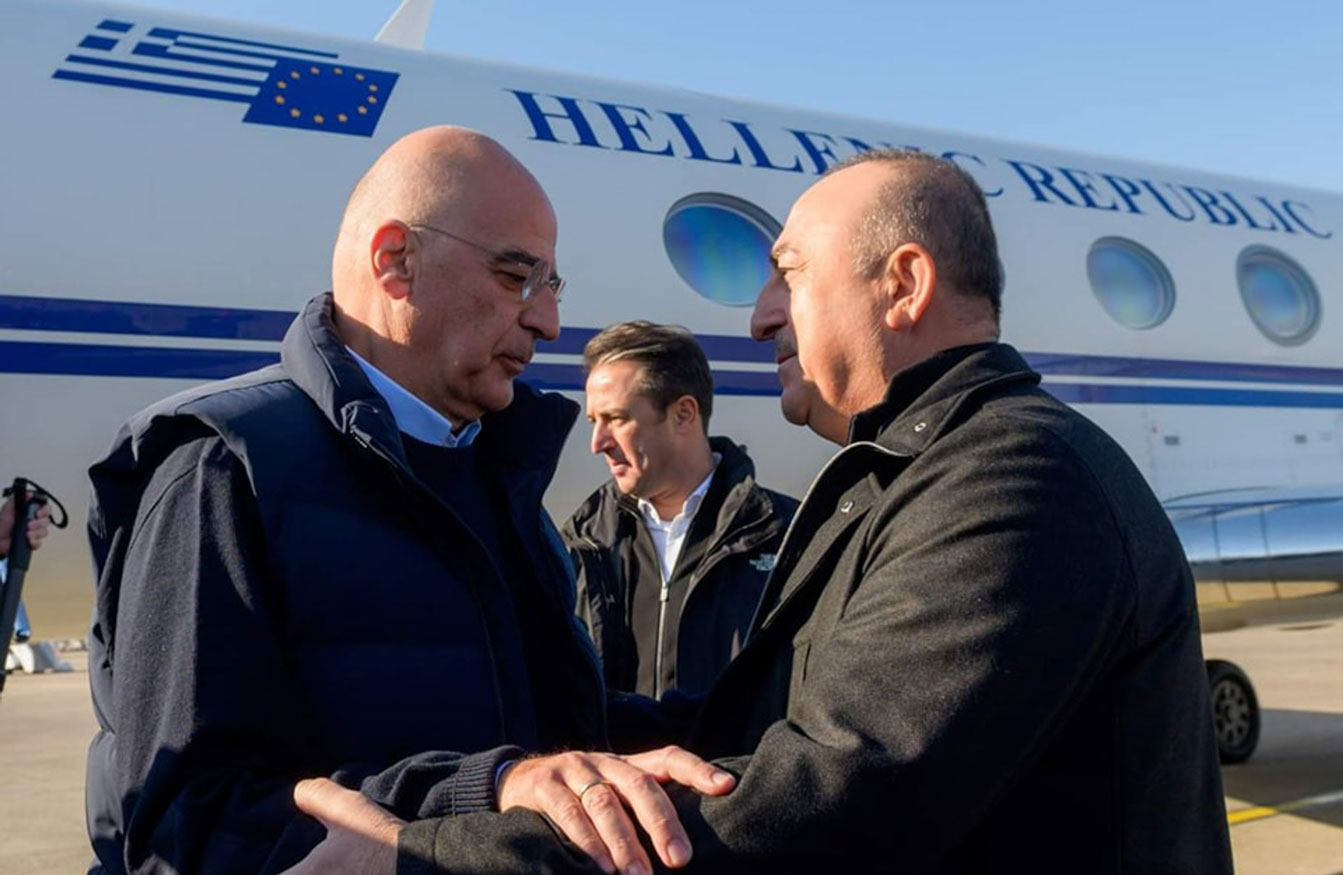An earthquake can bring two peoples together… The photo of Nikos Dendias cradling Mevlut Cavusoglu in Turkey and the treatment given to Greek rescuers show that something is about to change.
Almost 20 days after the deadly earthquake in Turkey and the unimaginable devastation that left at least 50,000 people dead, the presence of Greek rescue workers in the affected areas, as well as the visit of Greek Foreign Minister Nikos Dendias to the country and Warm welcome from Mevlut Cavusoglu After years of tension in bilateral relations, this may mark a new beginning.
Ariet Demirci, program director at the German Friedrich Naumann Foundation Extension for Liberals in Sofia notes, who deals deeply with Greek-Turkish relations for years, Deutsche Welle writes.
Recently in Berlin Demirtzi coordinated a press program for the same foundation, which has been valuable to the broader Greek-Turkish dialogue, and in which journalists, academics and experts from Greece and Turkey participated. In a difficult situation, a few days after the great earthquake, The exchange of views between the Greeks and the Turks becomes more important. But what is his opinion of the so-called “earthquake diplomacy” and the future of Greek-Turkish relations?
“I think this is a new beginning of good relations between Ankara and Athens But on the other hand, these are deeply rooted problems. So there is no guarantee that an earthquake can change things.” For him, the “momentum” could contribute positively towards the “sustainable improvement” of bilateral relations thanks to the spontaneous reaction of ordinary citizens at the social level in both countries.

Tragedy reminds us that we are all human.
“I hope that we will have better and more sustainable relations in the long term, without similar tragedies,” Erkan Saka, a journalist, blogger and media professor at Bilgi University in Istanbul, told DW in the same context.We hope to build on all of that. We need to change the way we see bilateral relations, to give it a positive dimension for the future. Tragedy reminds us that we are all human.”
For her part, Elim Yanardaoglu, associate professor of New Media at Kadir Has University in Istanbul and researcher of the Turkish program at ELIAMEP in Athens, focuses on the emotional and immediate reaction of the Greeks.
“I follow different groups on facebook and whatsapp. I was watching what people wrote on social media, collecting humanitarian aid for the earthquake-stricken areas,” notes the university student specializing in social communication operations, adding: “The way people wanted to help each other was amazings, but at the macro policy level we may not see immediate corresponding results. We will probably have to wait and see the impact of all these moves in the future.”
However, the professor in Torkala stresses the tendency of many people in Greece to show that through their social media posts, there is nothing separating the two peoples, “that we are friends and neighbors and help each other. So they brought back to the fore that sense of solidarity that had been lost.”
“The general public doesn’t necessarily sympathize with her.”
However, the Turkish experts’ comments are also interesting about the way the Greek aid has been recorded by the Turkish media these days. “I think that in terms of the media, the two countries are very different from each other. In Turkey, the government controls 95% of the media, and what Ankara decides on Greek-Turkish relations is reflected in the media.
On the other hand, although the situation in Greece is different, I noticed an obsession with Turkey,” says Aret Demirci, stressing that “the Greeks must understand that Turkey is much more than just Ankara and the Turkish government. The general public doesn’t necessarily sympathize with her.”
For Erkan Saka, despite the heavy shadows that permeate the public media landscape in Turkey, he believes there is still a glimmer of hope. As he usually says: A new form of media is emerging in Turkey. Small independent media, which can become the basis of the new ‘mainstream media’ in Turkey in the future. For him, what also changed with the earthquake is that many Turkish media stopped working as ‘press representatives of the Turkish government’ and showed another positive image. for Greece.





More Stories
F-16 crashes in Ukraine – pilot dies due to his own error
Namibia plans to kill more than 700 wild animals to feed starving population
Endurance test for EU-Turkey relations and Ankara with Greece and Cyprus